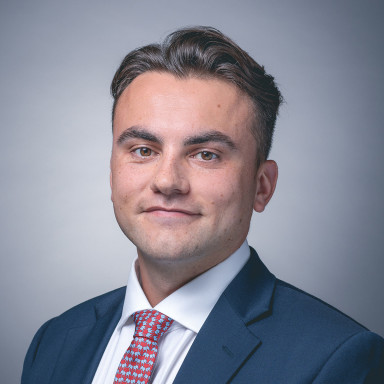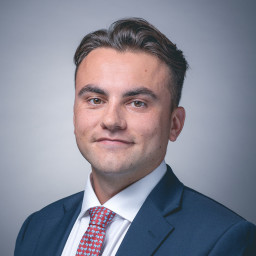This fund provides exposure to Latin American markets, specifically Brazil and Mexico
Abrdn have a well-resourced team with a dedicated team based in Sao Paulo
The fund has underperformed its benchmark over the past decade and near-term performance has also been relatively weak
This fund is not on the Wealth Shortlist of funds chosen by our analysts for their long-term performance potential
How it fits in a portfolio
The abrdn Latin American Equity fund is a specialist fund which aims to grow capital over the long-term by investing in Latin American stock markets. Brazil and Mexico are the primary focus for the managers with much smaller investments across Peru and Chile. This means it could sit alongside other emerging market funds, who tend to focus more on emerging Asian stock markets.
Higher volatility and risk should be expected from a fund like this, given it focuses on a small group of emerging economies. It should therefore only be considered to form a small part of a wider investment portfolio, focused on long-term growth.
Manager
abrdn’s Global Emerging Markets Equity team is responsible for managing this fund. The team have been investing across the region for decades and is currently headed by Devan Kaloo, who joined the group in 2000. They are well resourced with over 50 investment professionals and managers based across seven global locations, including London, Singapore, and Sao Paulo. This global footprint provides great access to companies and a holistic view of developing themes and market dynamics.
The team is divided into ‘pods’ to help streamline their focus. The Latin American pod consists of six individuals, including a dedicated ESG analyst and is led by Eduardo Figueiredo, Head of Brazilian Equities. Most members of the pod are based in Sao Paulo, Brazil. In addition to carrying out research, they’re responsible for ensuring the wider team’s best ideas make it into this fund. It’s very much a team-based approach. Each team member has been working closely together for many years, highlighting the strong team dynamic.
Process
The Latin American ‘pod’ adopt the same investment philosophy as the broader global emerging markets team which is based on 'long-term quality'. They believe most investors underestimate the sustainability of returns that many high-quality companies can make. They aim to find companies which can generate long-term growth, that have been overlooked by others, and hold onto them for many years.
Companies in good financial health, run by robust and trustworthy management teams are favoured by the team. They often look for a change that could help boost profits in the future, such as a new product or change in the use of technology. They sometimes invest in out-of-favour companies that can be bought at a more attractive share price.
Meeting company management is important, and the team can do this regularly as they’re based throughout the emerging markets, including Latin America. They also like to engage with companies on environmental, social and governance (ESG) issues, which could lead to better outcomes for both investors and society over the long run.
This result is a concentrated portfolio of around 30-35 companies, which means each investment could have a big impact on performance, which increases risk. The fund tends to invest heavily in the top two Latin American Stock Markets, Brazil, and Mexico which respectively account for 59% and 33% of the fund. Sector wise, the fund has more in sectors like industrials and real estate than the broader Latin American market. In contrast, they invest less in financials and materials.
The team made several changes over the past 12 months including the purchase of Rede D’Or, a Brazilian healthcare company and CCR, Brazil’s largest toll road operator. They also sold several companies over the year with fading conviction leading to the sale of companies such as Geopark, the oil and gas company and Walmex, the Mexican supermarket operator.
Culture
Aberdeen Asset Management was one of the UK's first asset managers to build a range of Asian and emerging markets funds. The group has remained committed to investing in these markets, including Latin America, ever since and we think this dedication is admirable.
Aberdeen Asset Management merged with Standard Life in 2017 to become Standard Life Aberdeen plc. This later became Aberdeen Standard Investments and in July 2021, the company changed name once again to abrdn to simplify and unite under one single brand. The Global Emerging Markets Equity team subsequently made some incremental changes to their investment process, though the core of their philosophy remains intact. We're pleased to see the team has settled since the merger and encouraged they're willing to learn and keep improving what they do.
The broader team is responsible for a range of Asian and emerging markets funds. Each member provides input to the wider franchise, and they share their knowledge and experience to ensure their best ideas make it into the portfolios.
ESG Integration
abrdn is a firm well known for its commitment to ESG. Responsible investing has been part of the business since it set up its Corporate Governance team in 1992 and launched its first ethical fund in 1994. We like that the firm’s policy positions on a range of divisive issues, from plastics and tobacco to palm oil and biodiversity, are easily available on their website. The firm also produces frequent ESG-related thought leadership articles, a podcast series and an annual Stewardship report.
We’re pleased to see that the firm’s commitment to ESG has filtered down to the fund level. abrdn fund managers generally see themselves as owners of businesses, not investors, and stewardship is an important part of their investment processes. The firm exercises all voting rights and engages with management to encourage best practice.
ESG and stewardship factors are included in every stock research note and each firm receives an ESG score, based on its ESG credentials and its ability to manage ESG risks. In fixed income, ESG risks are assessed and priced alongside other credit risks, and the managers encourage action that will reduce these risks. As with equities, each issuer receives an ESG risk rating. abrdn fixed income managers can invest in bonds issued by companies with a poor ESG risk rating, but they will require greater compensation via the credit spread, and usually take a smaller position size. All managers have access to a central ESG team, as well as specialist on-desk analysts.
The company runs several exclusions-based, sustainability focus and sustainability impact funds, which take its commitment to society, the environment, and other thematic investment goals a step further.
Cost
The fund has a standard annual ongoing charge of 1.13%, but we’ve secured a 0.54% saving for HL clients. That means a net ongoing charge of 0.59%. Our platform charge of up to 0.45% per annum also applies, except in the HL Junior ISA, where no platform fee applies.
Performance
The fund returned 42.01%* versus 58.20% for the MSCI EM Latin America 10/40 index over the ten years to end of March 2024. Whilst the fund’s relative performance is disappointing, the fund marginally outperformed peers with the IA Latin sector average returning 41.25%. Remember past performance is not a guide to future returns.
Over the past 12 months the fund and the index rose by 13.57% and 20.96%, respectively. Meanwhile, the IA sector returned 18.83%. The team’s selection within Mexico was strong, but the funds relative underperformance was largely down to the weaker stock selection within Brazil, a region which accounts for around 59% of the fund.
Energy has been one of the best performing sectors in Latin America, however, the fund has less invested here compared to the index. This was a headwind for relative performance, especially having less invested in Brazilian petroleum company, Petrobras.
It wasn’t all bad news though with the team’s investment in America Movil, the Mexican telecommunications company and Wilson Sons, the Brazilian logistics business, among the biggest contributors to performance.
Performance can be very volatile, especially when compared with funds focusing on a broader range of emerging economies or developed markets. We think this should be expected when investing in a specialist area, and from economies that continue to evolve and experience more political and economic uncertainty than developed markets.
Mar 19 – Mar 20 | Mar 20 – Mar 21 | Mar 21 – Mar 22 | Mar 22 – Mar 23 | Mar 23 – Mar 24 | |
|---|---|---|---|---|---|
abrdn Latin American Equity Fund | -36.05% | 36.29% | 17.12% | -6.79% | 13.57% |
MSCI EM Latin America 10/40 Index | -37.75% | 34.69% | 29.83% | -4.82% | 20.96% |
IA Latin America | -36.04% | 32.19% | 20.29% | -6.37% | 18.83% |


